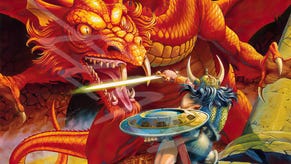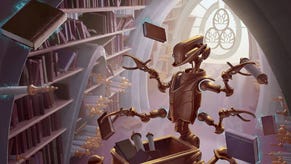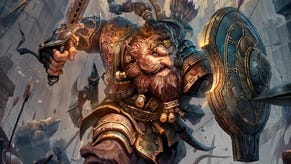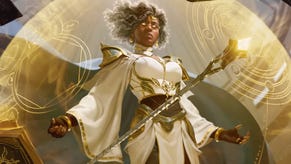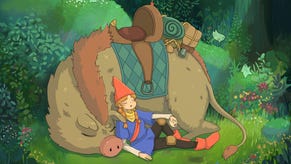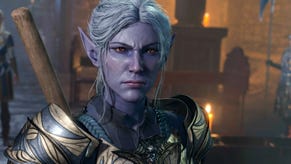How to make a great puzzle in Dungeons & Dragons 5E
Top tips to keep players guessing, not stressing.
Puzzles are an important part of the RPG experience to many players and game masters. The idea of solving a riddle or figuring out a strange inscription has precedent in the media that inspired Dungeons & Dragons. Whether trading riddles with a creature for a ring or solving riddles for hints on how to outwit deadly traps protecting the Holy Grail, many players expect a brain teaser or two when on their adventures.
How to make a puzzle in D&D
- Would you like to solve a puzzle?: Puzzles aren't an essential element to every D&D 5E game, figure out if your players want them.
- An extra large order of puzzles, please, no onions: Use lore and details to make your puzzles work within the context of the campaign your playing.
- Everybody loves a hint: Don't leave your players stuck on the same puzzle for hours and provide options for help.
- If all else fails, punch it: Ensure that your campaign keeps its momentum, even if players can't solve your puzzle.
Puzzles can also be absolutely frustrating to put together as a dungeon master. Combat design can be adjusted and readjusted to make the maths work. Roleplaying encounters can rely on the flow of performance in a scene and the outcome of a few rolls like persuasion, intimidation or deception. How can a dungeon master make these adjustments for a puzzle? How can they make a puzzle more difficult? Or easier?
Would you like to solve a puzzle?
The first thing a dungeon master should do is discuss with their players whether or not they want puzzles in their game in the first place. Ideally, this should be part of session zero before the game starts. RPGs are a collaborative experience and the more times everyone can confirm they are on the same page, the better the overall experience will be. Players might enjoy solving a puzzle together or they may prefer to focus their time on combat or roleplaying. The dungeon master might also find one player is into the idea, while the others are not.
For games already in motion, dungeon masters who want to introduce puzzles should consider trying out one during a session. Make it for something not essential to driving the plot forward like a magic item locked behind a puzzle wall or perhaps a game of riddles for a free round of drinks at the local adventurers’ tavern. Get player feedback after the session to see whether or not they liked the idea. If they do, then move ahead with adding more puzzles to the game.
“Good puzzle design in general, but especially for RPGs, requires a careful balance of intrigue and challenge without tipping too far on either side into simplicity or frustration,” says Elisa Teague, professional puzzle designer. Her work has been seen across the games industry. She’s been tapped by Wizards of the Coast to write about designing puzzles for Dungeons & Dragons in the upcoming Tasha’s Cauldron of Everything, due for a November release.
An extra large order of puzzles, please, no onions
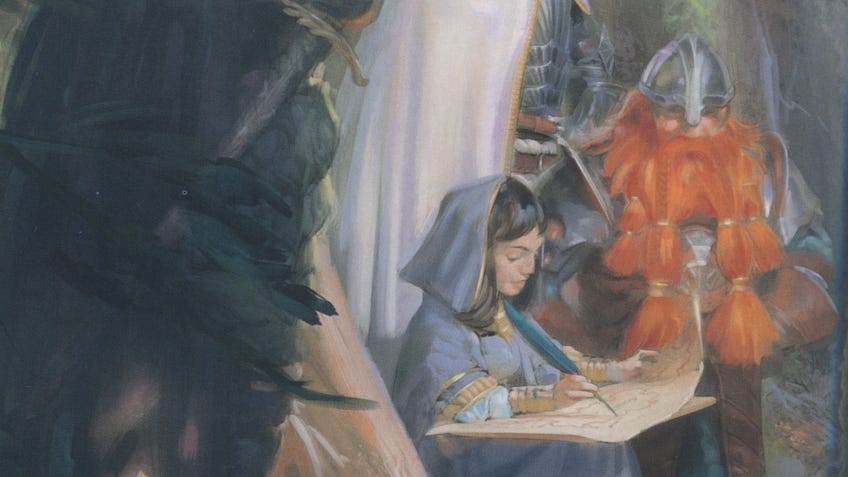
The first step in improving any dungeon master skill? Consume what you want to create. Puzzles are everywhere: video game set pieces, match-three smartphone games, sudoku books and more. Dungeon masters don’t necessarily have to become puzzle masters to put puzzles in their games, but a broad familiarity means a bigger pool to draw upon when designing custom puzzles.
“You don't want a solver to get the answer too quickly - that is not only boring, but it makes the whole process of finding and solving a puzzle inconsequential and unnecessary,” says Teague. “You also don't want your solvers banging their heads against a wall and tuning out of the game. Nothing should ever stop the gameplay in its tracks or pull people out of the immersion of the story. Just like a combat that goes on too long (which is a topic that I can also speak volumes on how to NOT do), a puzzle shouldn't break the flow of the game.”
This doesn’t necessarily reward players immersed in the lore of the world with an advantage, though that might also be a consideration when putting together a puzzle. It also means making sure a puzzle focuses on lore and ideas that the characters would know. A good puzzle doesn’t have clues based around the Greek pantheon since those gods would likely not exist in a fantasy world. Matching colors or interpreting symbols are universal and can make for a good starting puzzle design. If a group is full of people who know the world, such as Star Wars, something connecting to that lore makes more sense.
Everybody loves a hint
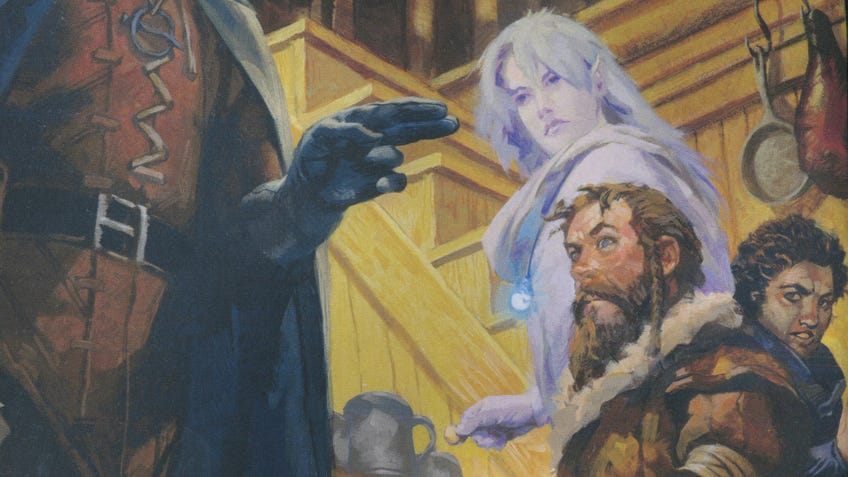
Much as balancing encounters offers an outside the fiction tool for making a game fairer, there exists a way for dungeon masters to keep the game moving forward if the players are stumped: hints. RPGs tend to have an element of resource management and puzzle hints can have that as well. Plan out hints that scale upward and are accessible in some way. Skill checks are one way to handle hints, while bigger hints (or even partial solutions) might cost inspiration if the players want to move forward without an organic solution.
“I build hints into every puzzle in tiers,” says Teague, “so players will get small hints at first and then slowly discover bigger hints if they are still stuck. A fatal mistake is for an impatient GM to give away the answer and take away a player's ‘Aha!’ moment, especially if they are really close to getting the answer. It is that epiphany that makes puzzle-solving so exhilarating, and I've actually seen players jump up and down and high-five each other in excitement when a solve is made as a team.”
This is an excellent opportunity to build hints into those skills that rarely see use, too. If a group has been stuck in a dungeon for a while, perhaps the ranger’s Nature skill comes into play by identifying an animal in one of the pictograms on the floor. Characters with a high intelligence score usually have skills like history, religion or arcana that can access noble succession, forgotten temple practices and magical clues. Other team members can help out with their skills, such as a bard’s Performance skill allowing them to read music notes carved into a wall or perhaps a Sleight of Hand check from the rogue to give the party a false start or two if they pull the wrong lever without hitting them with consequences.
If all else fails, punch it
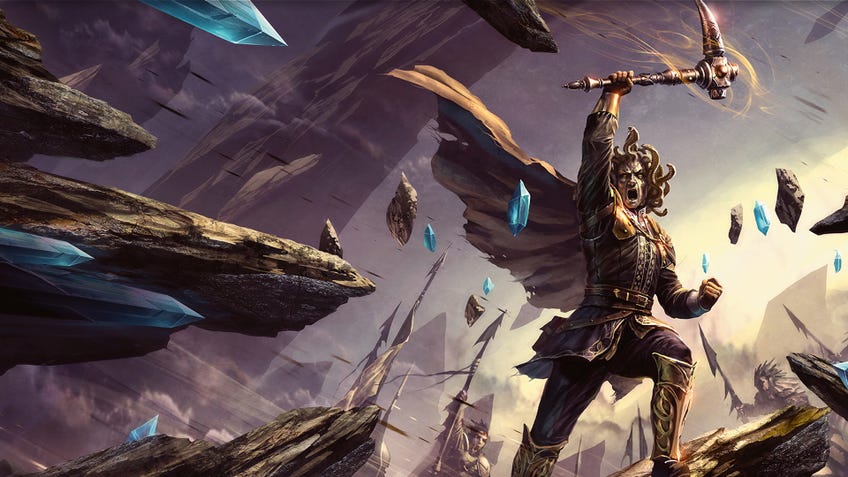
Dungeon masters should also consider what happens if the players, even with hints, can’t pull together the solution for a puzzle. Everybody has a bad night sometimes and the players might not have the mental room to put together a solution. If the puzzle is blocking something optional such as a cool item, failing to figure it out is not as bad. At worst, it gets skipped; at best, someone might figure out a solution later and encourage the group to come back to it.
If the players are stuck somewhere important, such as the vault door to the lich’s tomb, an alternate solution should present itself. Perhaps the heroes can brute force their way through the puzzle at a cost to valuable resources. Maybe the barbarian can power through the trapped floor tiles and soak up the damage to get everyone through. Maybe the wizard can spend spell slots to break the sigils on the locked door rather than figuring out how to disarm them naturally. The heroes might be able to get access if they take more time, but that gives their hated rival a chance to walk right in because they know the solution. A combat solution might also happen. After too many wrong guesses, the tomb guardians are summoned and one of them has the key to the puzzle on them that can be used after the players emerge victorious.
Or, for that matter, the players could just decide to go jump their rival and take their solution.



